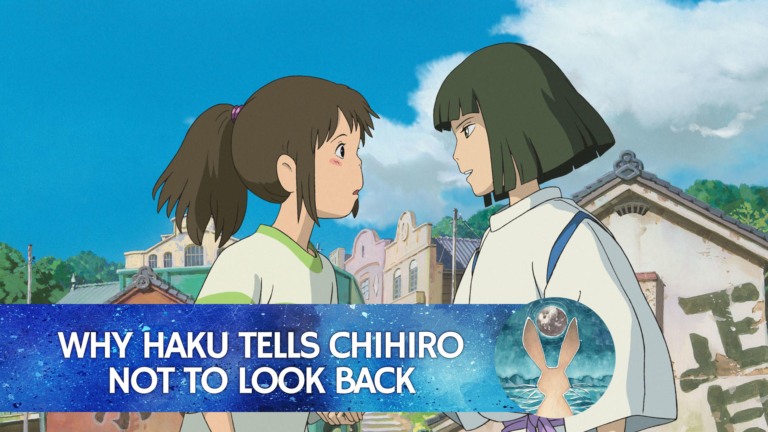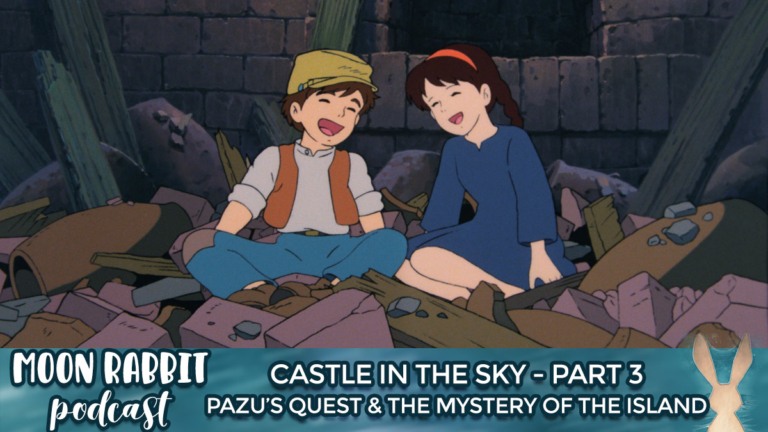When I tell someone that my main area of film research is Studio Ghibli films, there is a fifty percent chance that the next question I get will be:
“So did you hear about the theory that Totoro is actually a vicious death god?”
Siiiiiiiiiiiiiiigh.
I don’t blame anyone who thinks that — the long-standing attempt at simplifying the work of someone as masterful as writer-director Hayao Miyazaki is effective because on the surface, there’s not a lot going on in My Neighbour Totoro.
Two children, one soft and fluffy forest creature, fantasy fun in the countryside.
For a lot of people, My Neighbour Totoro is pretty, cute, and nothing more.
To me, My Neighbour Totoro is one of the most life-affirming pieces of cinema ever created.
Of course this won’t be a surprise to you if you saw the video I posted last week about how Totoro was originally created to follow Grave of the Fireflies in cinemas. It was designed so that a film about the horrors of war would be followed by a film taking you out of that dark place and into a world of healing.
But there’s even more than that happening, and for that you have to know a bit about Japanese mythology.
Which is what today’s video is all about (click to watch):
While I fully intend to do a debunking of the “Totoro Death God” idiocy later on, I think it’s more important to start with why this film is actually interesting from a cultural standpoint.
So in this talk, I covered three topics:
- Miyazaki’s personal mythology,
- how Totoro mirrors Fireflies,
- and trauma healing.
And I promise you, even if you’ve seen this film a million times (like I have), you will not be able to guess what some of the film is really about.
Like last week, I’m really interested in what you think of this.
So watch the video and then leave a comment and let me know! 🙂


I watched Totoro the first time in my life two weeks ago (shame on me, I know – being the second Ghibli movie a few years after Mononoke) and immediately spotted the mushroom cloud in the form of the tree. TBH for me, without thinking of it as part of symbol-replacement and healing, it was almost too shocking to see it even referenced like this in such a peaceful movie.
Maybe because I got too emotional over it as it had recalled my lost childhood “paradise” in the country that was similar to this. It was not a village itself, but similar, maybe even more magical: I grew up in a former manor that had been converted to be a children’s home (~orphanage for the UK readers) where my parents worked and we lived in-campus. The point is that it had its own magical forest with a brook, abandoned orchards and such we, employee’s kids had been free to explore as our parents had spent most of their days with the 20 or so kids in the home in their care who had much stricter schedules.
I’m getting TL;DR, just hard to express how genius this work is for the first-time viewer with its atmosphere, references and everything. And I have to note, I watched it with my 4.5 year old son, who is an Aspie and I suspect is also somewhat hyperactive, and tho he usually keeps jumping around the apartment after 20 minutes of watching any contemporary animated movies, he was really calm end excited to watch this from the beginning to the end (twice since), despite the fact that we screened it with the original Japanese sound and English subs as this is only available like this in Hungary on Netflix. But the story as a whole had been clearly understandable and exciting for him from the beginning to the end, by us only translating some key points, explaining what certain conversations are about.
The only thing I avoided were the references to the mother’s and Mei’s possible perish, that kept the girls really worried at the end and led to the most tense scenes. It was enough to tell him “the girls are really really worried about their Mom so it made them nervous and yell at each other badly”. Such harsh emotions, when someone is hurt, usually really confuse him and make him break down emotionally (interestingly, despite being an Autist, this is the side-effect of many sad moments in cinema – he tends to overreact), but this time it worked out fine somehow. Maybe because everything was so clear and understandable and deeply human – I don’t know. We’ll see later when he understands all this better. So this is a really, really extraordinary movie and I’m sure we’ll screen it more than 5 times until he grows up. 😀
What I liked the most about it: it is a beautiful tale, where children act, express themselves and appear as a whole 100% like children, unlike any other movie I’ve ever seen – where children are like how adult authors imagine them and often they are no more than accessories to enact some story an adult came up with in their mind. Totoro, however, is exactly something that could have happened with the very similar 5-8 year old me and my friends in that country manor/state home campus.